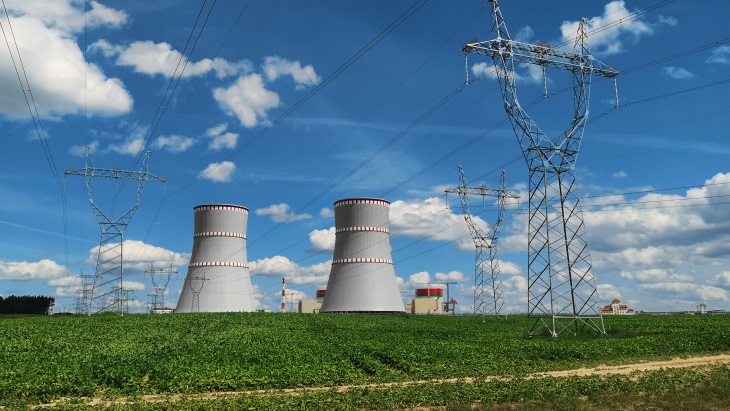The preliminary report reviews the measures implemented by Belarus with regard to seven issues and related recommendations from the 2018 Ensreg stress test report, which were identified as a priority by the peer review team. The preliminary report concludes that, based on the information made available and the site visit, progress has been made in implementing all recommendations related to the seven priority issues.
The EU methodology for stress tests was developed in the wake of the Fukushima nuclear accident in 2011. Belarus is participating in the process on a voluntary basis.
The European Commission said it will continue to engage with Belarus to ensure that the highest level of safety is guaranteed in the process of commissioning the nuclear power plant.
Marta Žiaková, Ensreg chairwoman, welcomed the approval of the preliminary report "as an important contribution to the Ensreg community’s wider efforts to advance nuclear safety in the EU and the EU’s neighbouring countries".
The peer review aims to evaluate the content and status of implementation of the Belarus National Action Plan (NAcP) that was published by Belarusian regulator Gosatomnadzor in August 2019 following the Ensreg stress tests report of July 2018. This NAcP, aimed at converting recommendations in Belarus’s stress test national report and the Ensreg stress test peer review report into concrete actions to enhance safety, together with a timeline for implementation. Belarus published an update of the implementation of the NAcP in January 2020, Žiaková said. In June 2020, the Commission received Belarus’s agreement to conduct the peer review of the NAcP.
Owing to the COVID pandemic, the peer review had to be reorganised into two phases. The first phase, which has now been completed, reviewed the state of implementation of the seven issues and the related stress test recommendations, which were recognized by the Ensreg peer review team and by the Ensreg Stress Test Board as priority issues. A full review of their implementation will be addressed in the second phase of the peer review, which is expected later this year, depending on the situation with the pandemic.
It is the first nuclear power plant to be built in Belarus. Unit 1 was connected to the grid in November last year.
Rosatom, the Russian state nuclear corporation, describes the VVER-1200 design, of which the Ostrovets unit is the first to be built outside Russia, as "the backbone" of its export portfolio that comprises 36 units across 12 markets.
In response to Ensreg's announcement yesterday, Vladmir Gorn, acting director of Rosatom’s Regional Centre for Eastern Europe, told World Nuclear News: "It is greatly encouraging to see that the EU’s nuclear safety body has officially confirmed that all high priority issues have been fully addressed."
The Ensreg report also highlights that Belarus continues to implement other recommendations, Gorn said, which are similar to its recommendations to nuclear regulators of EU member-states, recommendations that are now being implemented at nuclear facilities across the EU. The report "reinforces the endorsement" made by the International Atomic Energy Agency, he said, and its assessment that the regulator and the vendor had taken measures to "adequately address all necessary aspects of site safety and site-specific design parameters for the Belarusian NPP for relevant external hazards".
Rosatom continues to work closely with all stakeholders and nuclear safety watchdogs to ensure there are no doubts that all safety issues have been properly addressed. We are committed to the highest standards of transparency and have always provided all stakeholders with any information that they might require on the design and progress of the project," Gorn said.
He noted a 3 November 2020 statement by World Nuclear Association that the Ostrovets plant will provide a vital contribution to achieving global clean energy goals.






_18570.jpg)
_16159.jpg)
_49205.jpg)





